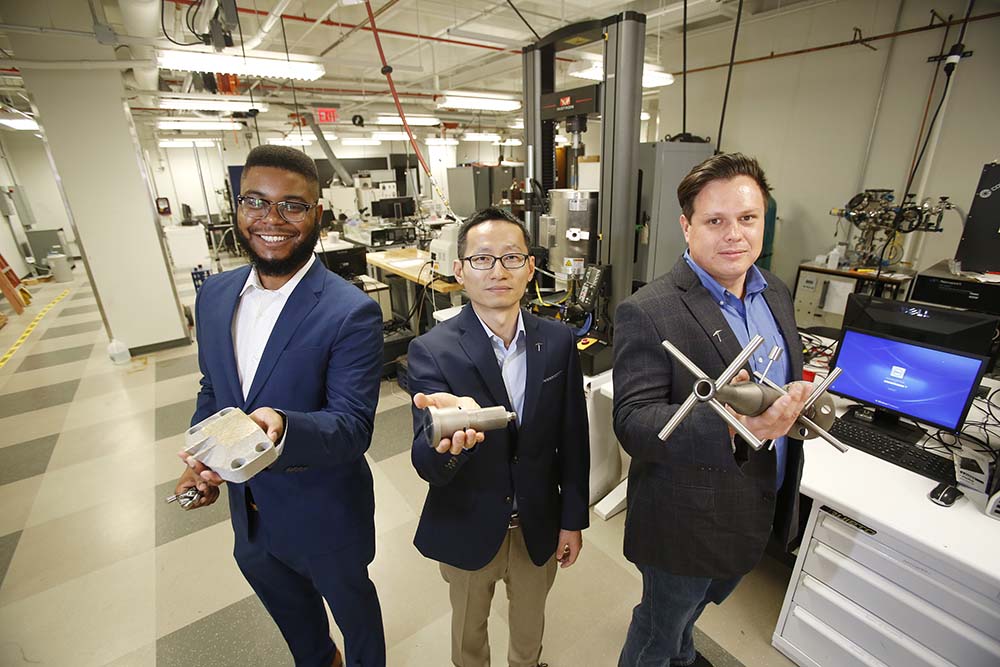UTEP’s cSETR to Lead $3M Collaborative Grant to Foster Next-Generation Energy Workforce
Last Updated on July 25, 2018 at 12:00 AM
Originally published July 25, 2018
By UC Staff
UTEP Communications
The work of UTEP professors has placed the campus’ NASA MIRO Center for Space Exploration Technology Research (cSETR) at the forefront of a three-year Department of Energy (DOE) grant worth $3 million for a collaboration between five institutions.

Yirong Lin, Ph.D., and Norman Love, Ph.D., associate professors of mechanical engineering, along with Calvin Stewart, Ph.D., assistant professor of mechanical engineering, were named recipients of the grant. The award is a new initiative of the DOE known as the Partnership for Research and Education Consortium in Ceramics and Polymers (PRE-CCAP).
The UTEP professors will lead the effort with counterparts from Florida International University (FIU) in Miami, Tennessee State University (TSU) in Nashville, as well as Los Alamos National Laboratory in Los Alamos, New Mexico, and Kansas City National Security Campus toward the project’s overall goal of establishing a sustainable pipeline of highly trained, next-generation workers and a community of technical peers to support the core mission of the DOE’s National Nuclear Security Administration (NNSA) – to enhance national security through nuclear science applications.
“The cSETR is pleased to be awarded the opportunity to steward this Department of Energy collaboration,” said Ahsan Choudhuri, Ph.D., associate vice president for strategic initiatives of UTEP and cSETR director. “The work of Dr. Lin, Dr. Love and Dr. Stewart to strategically design our education and research efforts in collaboration with partner schools and laboratories will ensure the success of PRE-CCAP. This grant is a testament to their efforts and to the national preeminence of cSETR, the College of Engineering and UTEP as a whole. We are excited to move forward.”
At UTEP, the fund will support three doctoral students and five undergraduate students. Those students will be a focal point of PRE-CCAP’s goal of providing opportunities for minority student research internships, research skills training, intellectual collaboration between Minority Serving Institutions and DOE laboratories, and to increase visibility of NNSA related scientific activities.
“We are building a pipeline for a future generation workforce,” Lin said. “There will be many opportunities for student research here at UTEP. They will also collaborate with other students in research projects, they will go on internships to these national labs where, chances are, they will get hired upon graduation.”
To accomplish that goal, Lin said the partner schools will take a three-pronged approach to the technical aspects of the project, which is geared toward developing a new method of material systems for applications in nuclear energy. At cSETR, research will be conducted on design, synthesis and fabrication of advanced ceramics and polymers for energy applications. FIU will focus on material characterization while TSU will carry out simulations and modeling. The laboratories will provide technical guidance as well as provide student interns with real-world opportunities to carry out their work.
“All the materials that are being developed out of this proposal are very important for high-temperature applications seen in the nuclear energy fields,” Love said. “Since we’re working on something that’s very relevant to this field, students are able to develop, model and test at our partner institutions and are marketable after graduation.”